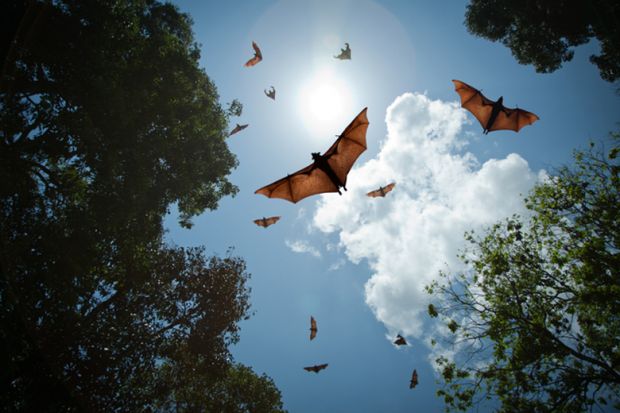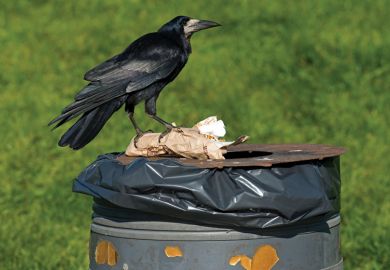Bat
Tessa Laird
Reaktion Books
The Reaktion Animal series, now covering everything from albatrosses to zebras, explores the biological and the cultural life of different species. Few have attracted as wide a range of responses as bats. Seen as ill-omened and associated with madness by some, they are elsewhere regarded as good luck charms and have inspired artists such as Jeremy Deller and philosopher Thomas Nagel’s famous essay “What is it like to be a bat?” Tessa Laird’s dazzling study takes in everything from Colombian breast plates to Chinese matchboxes, not to mention the Australian newsreader who raised an orphaned flying fox.
Autobiography: A Very Short Introduction
Laura Marcus
Oxford University Press
Autobiography, writes Laura Marcus, “is not merely one genre among many, but a nodal point for perennial questions posed in literature and in life”. It is also, sometimes under the rubric of “life writing”, at the heart of much recent academic research. This book considers examples ranging from St Augustine to Julian Assange, exploring how different authors put the focus on confession, consciousness, childhood and the public self. It also explores the place of photographs in autobiography; autobiography as performance; psychoanalysis in (and of) autobiography; unauthorised autobiographies; autobiographical novels, fiction interpreted as autobiographical and the new hybrid form known as autofiction.
The Right Amount of Panic: How Women Trade Freedom for Safety
Fiona Vera-Gray
Policy Press
Women in public spaces, argues Fiona Vera-Gray, habitually make decisions about “where to go or how to get there, what to wear or where to look, often without even thinking about it – not so much a choice as just ‘what you do’”. This study draws on interviews and detailed notebooks produced by 50 women in the UK to reveal the extent of such “safety work”, which often “requires a reduction; women made to feel small and to take up less space in public”. If we want to create a world where women no longer have to “routinely trade their freedom for safety”, listening to their testimonies would be a good start.
Civilization and Disease
Henry E. Sigerist
Cornell University Press
Henry Sigerist (1891-1957), claims Elizabeth Fee in the introduction to this book, was “the first medical historian to enjoy celebrity status” and whose work “continues to be influential”, both among historians and “left-wing medical professionals”. Astonishingly wide-ranging in his interests across cultures and in the arts as much as the sciences, he suggested, for example, that William Harvey’s work on the circulation of the blood “showed the same preoccupation with movement as did baroque art”. Based on his six Messenger Lectures delivered at Cornell University in 1940, Civilization and Disease compellingly relates developments in medicine to economics, social life, the law and religion, and also to philosophy, literature and even music.
The Ethnobotany of Eden: Rethinking the Jungle Medicine Narrative
Robert A. Voeks
University of Chicago Press
We often tell ourselves a powerful story, according to Robert Voeks, that “the biblical Garden of Eden, God’s sacred oasis of perpetual spring, healing leaves, and life everlasting, was hidden deep in the primordial rainforest”. But although it makes a compelling argument for preserving such rainforests, is it really true that there is or was a world of “noble natives” and “mysterious shamans” which is also full of “miraculous drug plants”? Or is this largely just a Western fantasy? Here the author, drawing extensively on his experiences of working in Borneo, Brazil and Mozambique, carefully untangles what may actually be true from what we would just like to believe.
Register to continue
Why register?
- Registration is free and only takes a moment
- Once registered, you can read 3 articles a month
- Sign up for our newsletter
Subscribe
Or subscribe for unlimited access to:
- Unlimited access to news, views, insights & reviews
- Digital editions
- Digital access to THE’s university and college rankings analysis
Already registered or a current subscriber?




